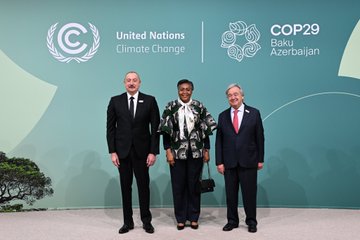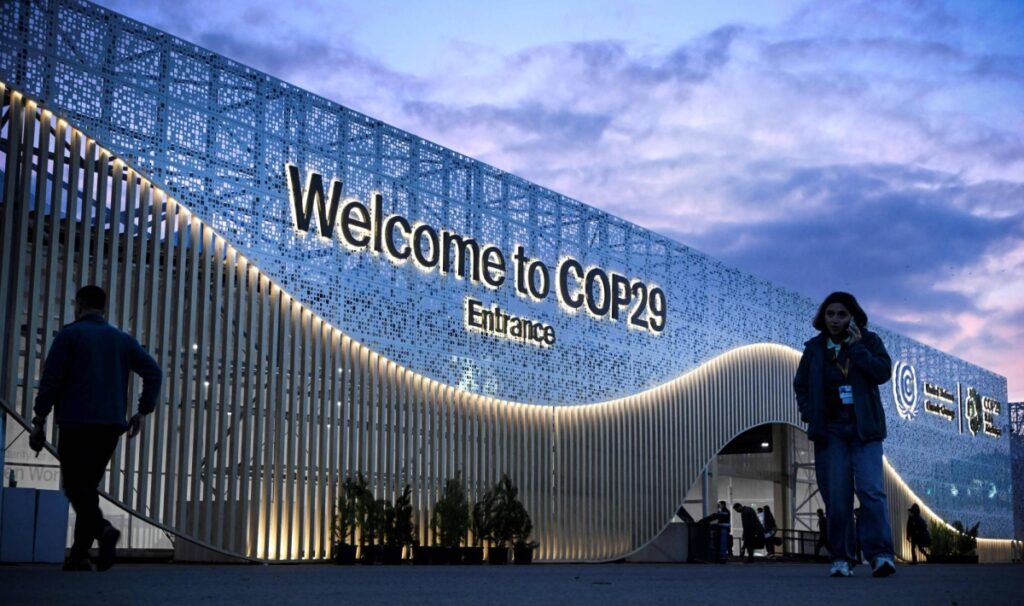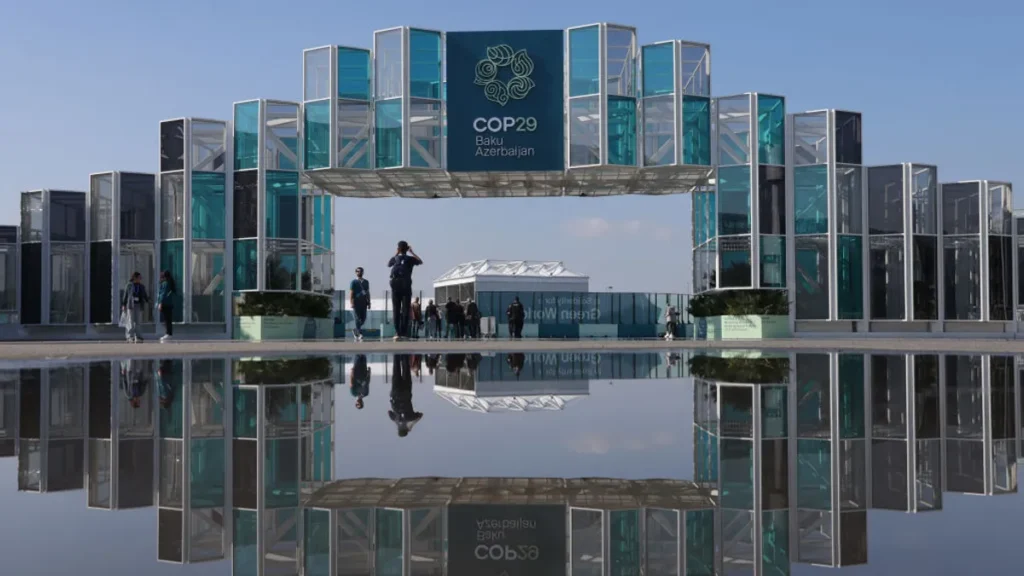The United Nations (UN) Secretary-General António Guterres says the creation of the Loss and Damage Fund is a victory for developing countries, for multilateralism, and for justice.
Guterres made the remarks on Tuesday, 12 November at the COP29 High-Level Dialogue on Loss and Damage and to Africa’s Green Momentum event in Baku, Azerbaijan.
“Our world is getting hotter and more dangerous. And this is not a matter of debate. It is a matter of fact. We’ve just had the hottest day, the hottest months, the hottest years, and the hottest decade in the history books,” he noted.
According to him, climate disasters are piling up, economies wrecked, lives taken, livelihoods lost, and development denied.
“And meanwhile, those that contribute more to the destruction – particularly the fossil fuel industry – continue to reap massive profits and subsidies.”
He said the Loss and Damage Fund’s initial capitalization of $700 million doesn’t come close to righting the wrong inflicted on the vulnerable.

“$700 million is roughly the annual earnings of the world’s ten best-paid footballers. It does not even account for a quarter of the damage in Viet Nam caused by Hurricane Yagi in September. We must get serious about the level of finance required,” noted Guterres.
He urged countries to commit new finance to the Fund and to write checks to match, adding that bilateral flows alone won’t suffice.
“We need new responses, and new sources, to meet the scale of need. I urge countries to agree a new climate finance goal that taps innovative sources. We need to implement solidarity levies on sectors such as shipping, aviation, and fossil fuel extraction – to help fund climate action.”
He said in an era of climate extremes, loss, and damage finance is a must while urging governments to deliver in the name of justice.
Harnessing Renewables for Industrialisation
Guterres said Africa’s desire for renewables is clear as seen in the extraordinary projects developed across the continent.
“You know that clean energy can power prosperity and sustainable development from Cairo to Cape Town; that renewables can drive industrialisation, and economic growth. And that it can revolutionise lives – bringing affordable power to people for the first time.”
According to Guterres, clean power also means better health, reliable access, and lower costs. He cited a need for action to release the full potential of African renewables.

“All countries must produce new, economy-wide national climate action plans – or NDCs – by next year. These must align with limiting global temperature rise to 1.5 degrees Celsius. And they must contribute to the global energy transition goals agreed at COP28.”
The G20 countries are the biggest emitters with the biggest responsibilities. They must lead these efforts, and a just, global fossil fuel phase-out.
“But all countries must step up – and seize this opportunity. New NDCs are a chance to align national energy transition strategies and sustainable development priorities with climate action – to attract needed investment.”
He pledged UN support for African countries through the Climate Promise initiative.
“Second, we need finance. Many of your countries face sky-high borrowing costs, runaway debt, and inadequate climate finance and investment. The result: adaptation denied; your clean energy revolution held back.”
Despite being home to 60 per cent of the world’s best solar resources, Africa has only around one per cent of installed solar capacity. Around 600 million people on the continent do not have access to electricity.
The Pact for the Future contains clear, ambitious commitments on reform of the international financial architecture and action on debt.
“We must push to ensure these commitments become reality. And we need an agreement here in Baku on a new financial goal.”
Critical Minerals
According to Guterres, Africa is home to almost a third of the minerals critical to the renewables revolution.
“These extraordinary resources could help to power prosperity across the continent. But too often, your countries are bound to the bottom of value chains.”

He highlighted the scramble for African resources that exploit African people, tramples their rights, and ruins their nature.
“We need a fundamental shift. So that you can move away from supplying raw materials and diversify your economies.”
Guterres said they established the United Nations Panel on Critical Energy Transition Minerals to help embed justice, fairness, sustainability and human rights across the critical minerals value chain.
“We must push all parties to put its findings into action – including ensuring maximum value is produced in Africa.”
Climate Change
Guterres also cited an urgent need to address the intolerable injustice African countries face to help protect their economies and people from devastating climate impacts.
“Despite minimal emissions, the climate crisis is hitting your continent hard. Pummelling your people and pounding your economies,” he said, adding: “We urgently need developed countries to honour their commitment to double finance for adaptation to at least $40 billion a year by 2025.”
He believes Africa can become a green energy powerhouse driving industrialization and prosperity for its people. “Let’s see Africa where it belongs: at the forefront of the renewables revolution.”









